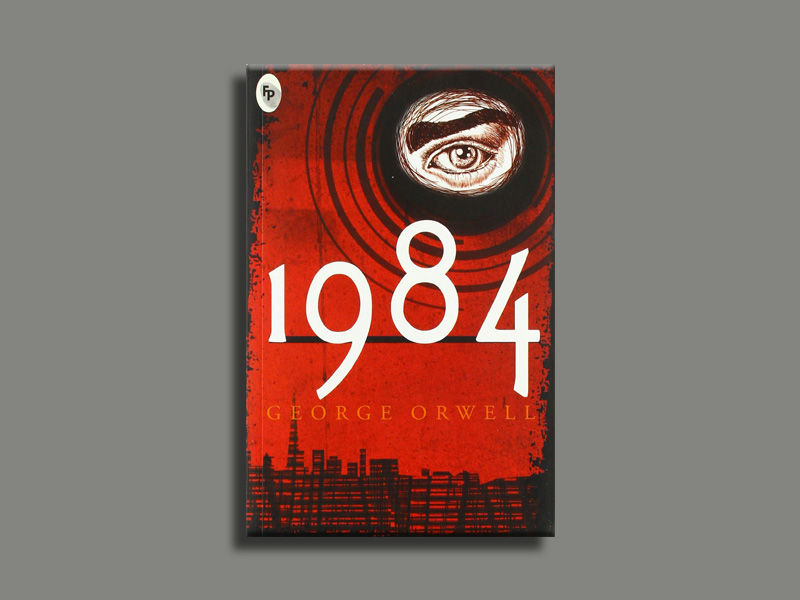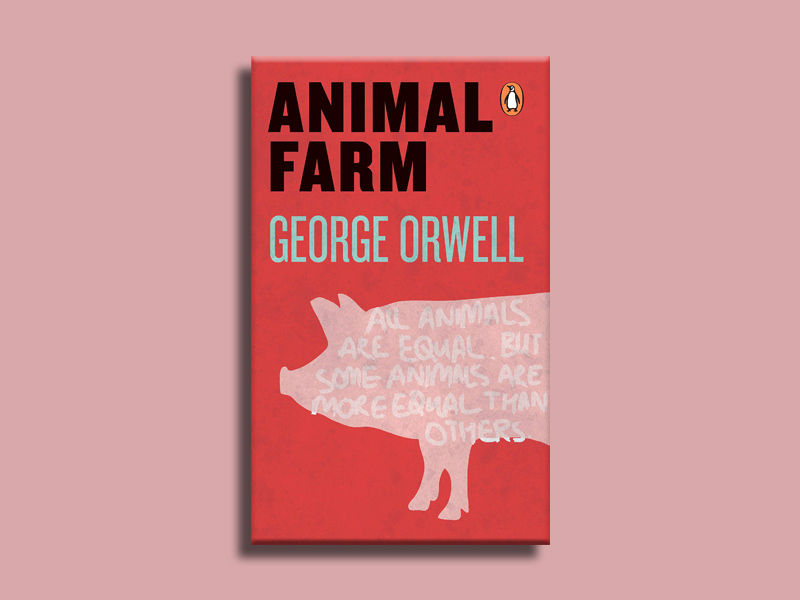Eric Blair, a writer of the 20th century equally at home in journalism, essays, novels, literary criticism, and social commentary, wrote under the pen name George Orwell. He was well-known in all of those fields, but two of his books, Animal Farm and Nineteen Eighty-Four, which are both regarded as two of the most important and influential novels of the 20th century, will stand out in particular. In fact, many of George Orwell’s quotations from his writings are now well-known and are repurposed to create fresh English expressions.

Three of George Orwell’s nonfiction books are considered to be journalism classics. The Journey to Wigan Pier (1937) is a careful study of the working class in the north of England; Down and Out in Paris and London (1933) relates the tale of life as a vagrant in those two wealthy cities; Homage to Catalonia (1938) is an account of his participation in the Spanish Civil War.
Orwell was a sharp observer of the tendencies of his period and used that knowledge to create his two masterpieces. In the case of Nineteen Eighty-Four“` he emerged as a sort of prophet, warning society about the direction it appeared to be headed. People in the narrative have lost their humanity and are controlled by an invisible government using rapidly advancing technology.
The book paints a gloomy picture of the future. Since the publication of the novel, governments have frequently received warnings from those who disagree with them that more censorship and camera surveillance will push the nation closer to the events of 1984. Several words and phrases that Orwell utilized to build the dystopian world of this book are found in the language he used.
His terminology and phrases like “Big Brother,” “thought police,” “Room 101,” “thoughtcrime,” and “doublethink” have become commonplace in the English language.

Other words in newspeak include joy camp (forced labor camp), good think (right thinking), oldthink (revolution-ignoring mentality), and prolefeed (the endless stream of television propaganda)…
The novel Nineteen Eighty-Four has served as a warning for many years and continues to do so about the dangers to democracy posed by leaders with a strong propensity for authoritarianism. In fact, Orwell was right when he said that things like intrusive surveillance cameras—which are present in even the most developed democracies—email monitoring, interactive television, the proliferation of obfuscatory terms in politics like “alternative facts” and “fake news”—are now a reality.
The 1917 Russian Revolution and the start of the Stalin era are both depicted in the little novel Animal Farm. Allegorical fiction techniques are used to tell the tale. The characters are animals, and various types of animals are used to represent various aspects of Soviet society, such as the proletariat (represented by sheep), Communist Party members (represented by pigs), security police (represented by dogs), etc. The book is written in a way that can be understood by everyone and is simple enough for a youngster to read. It is a fantastic book that, in a condensed text, thoroughly examines the Revolution.
Apart from the innovative language he uses in his novels, Orwell writes in a very straightforward, unambiguous, and lucid manner in his articles and journalism. He outlined guidelines for that type of writing, including the use of concise words, new metaphors when necessary, cutting out any words that could be cut out, refraining from using technical terms, jargon, or foreign idioms, and avoiding the passive case.

By following those guidelines, Orwell achieved a very high level of communication in his writing. For instance, the simple shock of the elephant’s death in one of his pieces, How to Kill an Elephant, written in spare style, evokes a tremendous amount of emotion. In 1930, while serving as a police officer in Burma, Orwell watched a hanging and published a piece titled A Hanging about it. Because Orwell uses objective, truthful, unadorned language to describe it, the reader experiences the full horror of it.
Also read: Eva Green’s Spy Thriller Liaison Is A Shambles Of A TV Programme
By following those guidelines, Orwell achieved a very high level of communication in his writing. For instance, the simple shock of the elephant’s death in one of his pieces, How to Kill an Elephant, written in spare style, evokes a tremendous amount of emotion. In 1930, while serving as a police officer in Burma, Orwell watched a hanging and published a piece titled A Hanging about it. Because Orwell uses objective, truthful, unadorned language to describe it, the reader experiences the full horror of it.




























